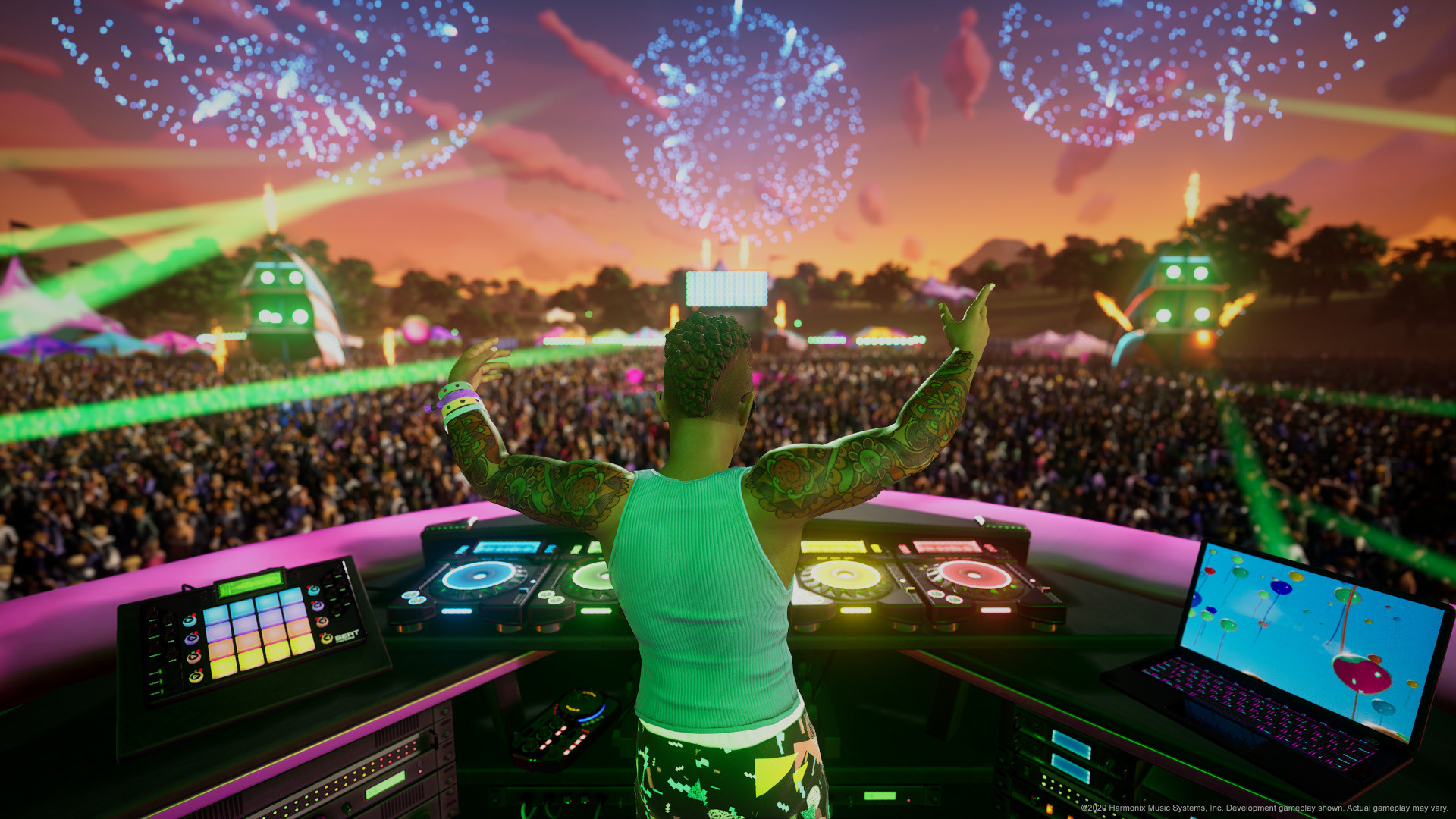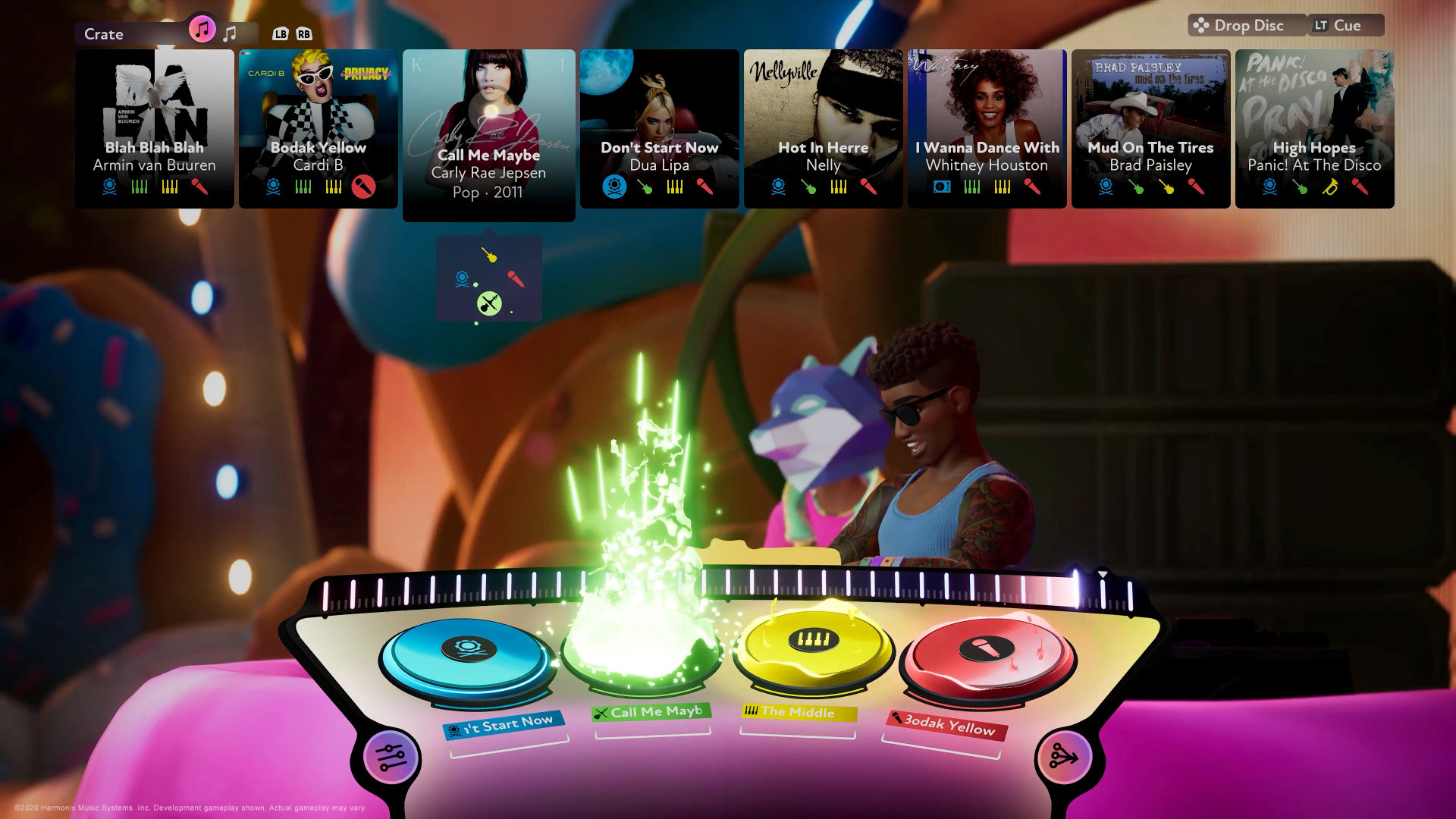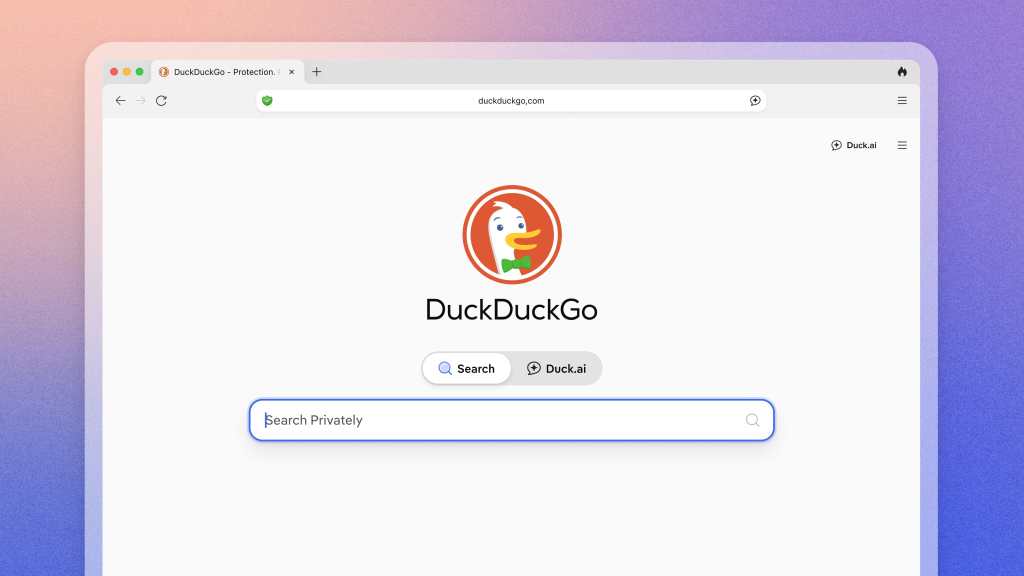The era of the music game’s mainstream popularity might seem firmly in the past—junkyards and pawn shops across America are littered with Guitar Hero controllers and Rock Band drumsets. But this month, Harmonix—the developer of the first two Guitar Hero games, the Rock Band franchise, and a litany of other rhythm games—takes another crack at the genre with Fuser, in which players take on the role of a DJ at a music festival and attempt to win over the crowd with new combinations of old songs.
Informed by the dizzying, day-glo aesthetic of massive EDM festivals like Ultra Music Festival and Tomorrowland, Fuser’s visual style feels reminiscent of an earlier moment in the last decade, the era of Spring Breakers and “Turn Down For What”—not to mention that the crowded and close-proximity world of music production is literally a fantasy at the present time. However, your virtual “record crate” contains much more than just conventional dance music, from reggaeton to Rage Against the Machine, from pop-country to The Cranberries. Fuser is obviously very different in many ways from actual DJing — it’s not actually so easy to isolate vocal tracks from the rest of a recording, or to perfectly sync multiple songs together — but it encourages the same kind of creativity and quick instincts you need as a real DJ.
Videos by VICE
I would know, because in addition to my work as a writer and critic, I’m also a DJ. It started innocently enough in 2014—I hosted a rap show on my college radio station, and a friend asked if I’d be interested in providing the soundtrack for a party she was throwing—but it soon became one of the great loves of my life. Since then, I’ve played clubs, weddings, house shows, business openings, political fundraisers, pretty much any kind of space or event you can think of. At first it was fun enough to get to choose what songs people heard at a party, but the more I practiced my mixing and the deeper I got into dance music and DJ culture, the more I realized the unique power you hold in your hands as a selector. As the song says, a DJ can really save someone’s life.

Though sometimes your work goes unnoticed and unacknowledged, you are an integral part of a night out, and you can make your audience’s evening absolutely unforgettable if you do your job right. DJing is an inherently social relationship, as you observe the crowd, read cues from their bodies, see how they respond to certain tracks. It goes without saying, but beyond the occasional Twitch stream, DJing isn’t something I’ve been able to do publicly in almost a year, and how I miss it so. Thankfully, Fuser recaptures so much of what I love about being a DJ: the pressure of the crowd’s eyes all being on you, that simultaneous adrenaline rush and anxiety attack of knowing your whole mix could crash and burn at any moment, the absolute euphoria of dropping the right track at precisely the right time and winning your audience’s undying devotion.
Of course, this isn’t the first time games have taken on the art of mixing—Neversoft’s short-lived DJ Hero franchise tapped into the mash-up culture of the early 2010s by allowing players to “create” new remixes by bringing two iconic songs together (“All Eyez on Me” vs. “Bittersweet Symphony,” for example). Though Harmonix didn’t develop the DJ Hero series, it’s hard not to compare the two properties, both because DJ Hero grew out of the Harmonix-originated Guitar Hero franchise and because it’s the most widely-known DJ game. Like Guitar Hero and Rock Band, DJ Hero essentially adapts each song into a level that’s relatively straight to the point; the only way to move ahead is forward, and there’s minimal room for variance across multiple performances. The only real motivation to replay is to fix your mistakes, work on your timing, and earn a higher score. Fuser, on the other hand, almost takes an open world approach to the art of DJing: there are guideposts and challenges, but they only provide a rough blueprint from which to build your mix. The specific details are, for the most part, up to the player, and each attempt at a level can offer wildly different sonic outcomes.
Every stage in DJ Hero was, essentially, a relatively simple mash-up of two songs, each combination created and recorded by the game’s design team, as well as superstar DJs like Grandmaster Flash and Z-Trip. Fuser goes so far beyond mere mashups and actually makes you feel like you’re creating something original and new—you can even export your own mixes for other Fuser listeners to hear. Because it still relied on a physical controller, DJ Hero was tied to the idea of turntables as a kind of analogue instrument, which limited its conception of mixing to little more than crossfading back and forth, scratching a record, and pushing a few buttons. Don’t get me wrong—DJ Hero is mighty fun, but mostly because of its mash-ups, not because it makes you feel like you’re actually creating something new.

Fuser treats music as something fully digital, a series of layers and filters that can be peeled apart, manipulated, and assembled into an almost infinite number of new combinations. There’s so much more to the game than just syncing two tracks together: you can alter the tempo and key of your mix, trigger sound effects and filters like flanging and distortion, and even create original loops of your own from a variety of beat pads and keyboards. Though Fuser wants you to create smooth, stimulating combinations that will please your virtual crowd of festivalgoers, it’s hard not to fully take advantage of the game’s potential and unleash Neil Cicierega-style cacophonies on the world.
There’s no one right way to be a DJ, in real life or in games: there are lifelong, successful DJs who simply play one song after the other, never approaching the kind of complicated mixing Fuser gestures toward. Because there’s such fluidity to the artform, Fuser replicates the learning curve of DJing for novice non-DJs by essentially being a game-length tutorial. You start off with the basics: syncing up drums, instrument tracks, and vocals, and learning how to time it so you drop a record perfectly on-beat. From there, almost every stage teaches you a new skill, like how to cue up a track so you can drop it without shuffling through your record crate, how to mute or solo specific songs, and how to incorporate audience requests into your mix. But the game doesn’t require you to become an expert in every aspect of the gameplay—you can still beat a level even if you ignore requests from the crowd and only use effects sparingly—which allows for the development of your own distinct style as a DJ.
You have so much control that it can at times be almost overwhelming, with so many plates spinning that it’s hard to think very long about what tracks to drop or effects to apply—Fuser rewards immediate, instinctive choices. Sometimes you’re switching tracks so frequently that it can sound inhuman, or unlike anything someone would actually want to dance to. But in that emphasis on instinct, Fuser captures the artform’s reliance on gut reaction. As a DJ, you’re always riding a thin line between engaging your audience and losing their attention: fade in a track a second too late or too early and your entire mix might sound awkward and offbeat, let a track play too long and minds and bodies might start to wander. You have to be incredibly careful and attentive, but there’s also minimal time to second guess yourself.

It’s tough for a video game to have the same unique social relationship that exists between a DJ and their audience, but Fuser perfectly captures what to me is the true joy of DJing: taking two songs that people would never expect to hear together and making them one seamless whole. In Fuser, just like in an actual DJ set, when you put two or more unexpected tracks up against each other — let’s say, the vocals from “Killing in the Name,” the guitar line from “All Star,” the steel drums from “Crank That (Soulja Boy),” and the piano riff from “Clocks,” an unexpectedly winning combination I hit upon early in the game — you can reveal new connections between disparate forms of music, changing how your listeners react to and interact with songs they already love. Though concerts, raves, and festivals might be a distant memory at this point, Fuser recreates the special kind of serotonin boost that can only be caused by a perfect drop.
More
From VICE
-

Photo: drante / Getty Images -

Photo: dbvirago / Getty Images -

Credit: DuckDuckGo -

Photo: Oleg Breslavtsev / Getty Images
